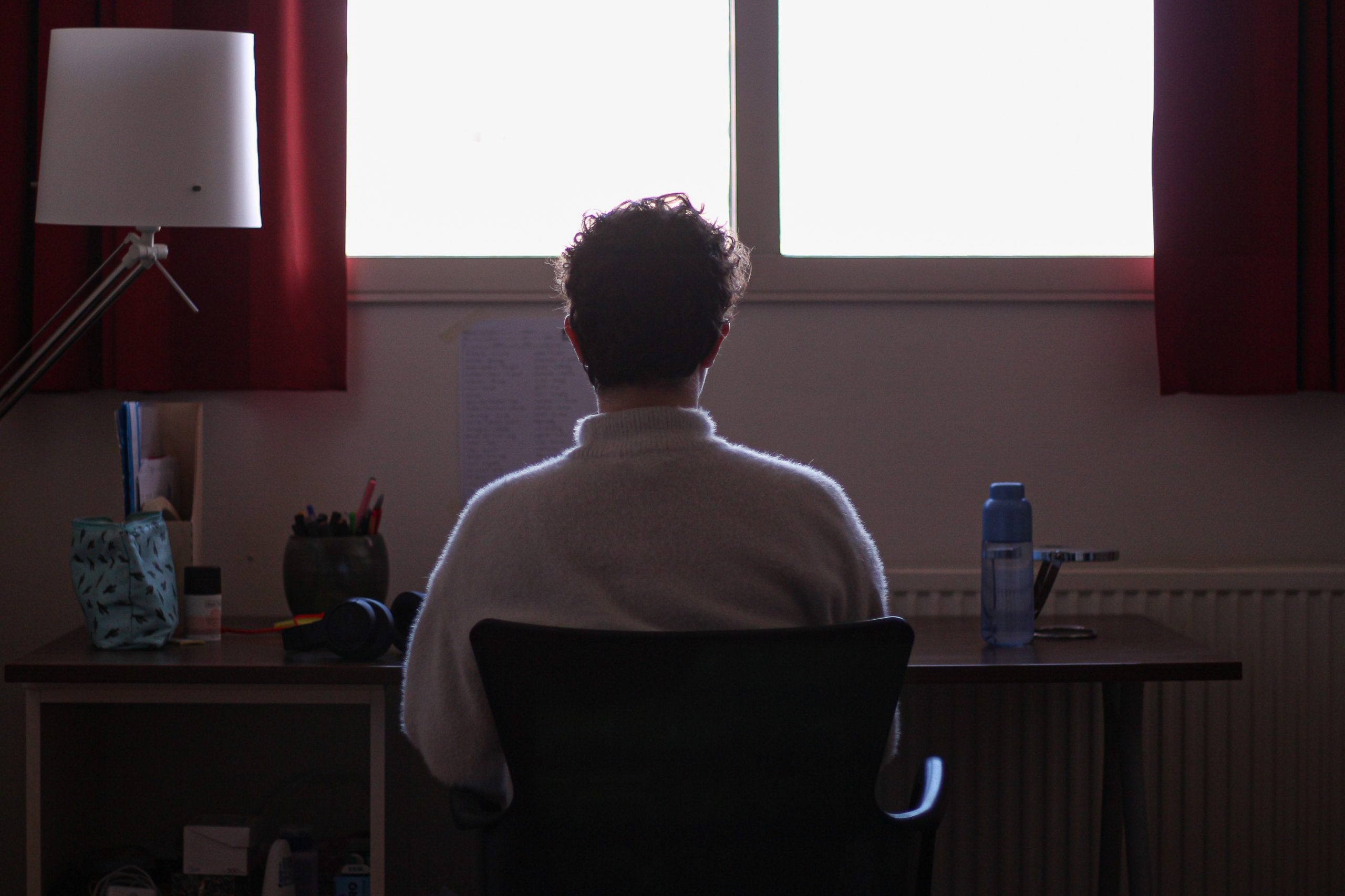To campus, sports, parties. We can do it again. Delta looks back at two years of Covid with students. This time with Kasia, who talks about mental health issues.
Kasia Antoszyk: “In such a stressful environment as a university, I think it is really important to talk about your well-being.” (Photo: Justyna Botor)
Kasia Antoszyk (23) is doing her masters in Architecture. She is from Poland and came to Delft in 2021. During the pandemic she struggled with depression.
How was the beginning of the pandemic for you?
“Soon after the beginning I had a job in Glasgow. I went to therapy because I noticed I was not feeling well. I was lucky that I was working in a supportive place where I could speak about it freely. I could also take some time off if I needed to. A year into the pandemic it became apparent that I had depression. When I moved to Delft this year to start my masters I felt better. But the new environment was very stressful. So at some point my mood worsened again.”
How did the pandemic influence your depression?
“It obviously was not an easy thing to deal with. Especially when you have those limitations that don’t really allow you to do the things you would normally do. For me it was also the stress of my studies and work that was anxiety inducing. The whole therapy process was also online. That was hard to do, I like to talk to someone face to face.”
‘In the beginning, I was ashamed’
What helped you during your depression?
“It was very helpful for me to hear from other students that they were also struggling with mental health issues or depression. Just knowing that there are other people going through the same thing is very helpful. In such a stressful environment as a university, I think it is really important to talk about your well-being. And then I don’t mean the university sending an email saying they support the students, I mean creating a supportive environment. We do have a student psychologist, who you can apply to see, but I think it is better to create a network of students who can openly talk about their mental health issues with each other.”
How do you feel now?
“It is a process, I have good and bad days. You cannot really control it. It is also easier for me to talk about it now. In the beginning, I was ashamed. Even though it is not true, it sometimes feels like a weakness to have depression. But of course it is not your decision to feel like this. Mental illness is something you cannot see on the outside and that makes it harder for people to understand. Our generation is more open about it, but our parents or grandparents are not necessarily open. That is probably also why normalising it is still a process.
I did not want to be recognisable in the picture for this interview because I don’t want to make it about me. I just want to make it about being open about depression. Maybe there are people around me with mental health issues I don’t know about. Maybe it got worse because of the pandemic. I want them to know they can always talk to me.”
- You can find the other parts of this series here.
Doris Aafjes / Student-redacteur



Comments are closed.